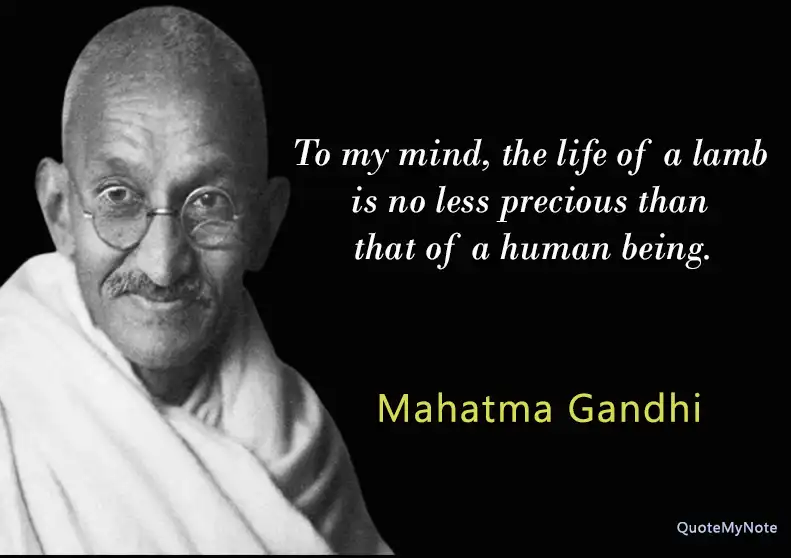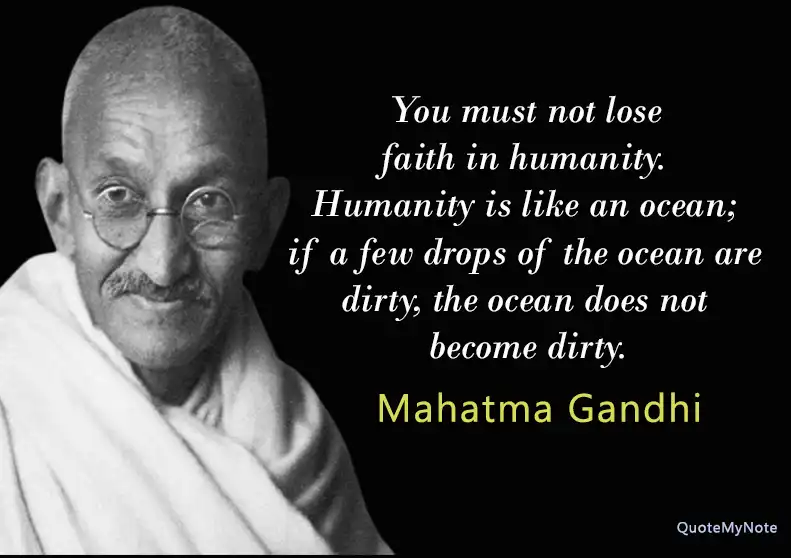Mahatma Gandhi Quotes for Inspiration and Motivation

About Mahatma Gandhi
Mahatma Gandhi, also known as Bapu, is one of the greatest political icons in history. Born on October 2, 1869, in Porbandar, India, he was guided by nonviolent beliefs throughout his life.
Early Life and Family
His father, Karamchand Gandhi, was the Chief Minister of Porbandar, and his mother, Putlibai, was a deeply religious and charitable woman. Gandhi's upbringing and family values played a significant role in shaping his character and future actions.
Rise to Prominence
Gandhi's journey to becoming a leader began in South Africa, where he fought against racial injustice. He married Kasturba at the age of 13 and continued his schooling in London. However, it was in South Africa that he experienced severe racial discrimination, which had a profound impact on him.
- Established the National Indian Congress in 1894
- Devoted nearly two decades to fighting against racial discrimination
Indian Independence Movement
Upon returning to India, Gandhi became a key figure in the country's struggle for independence. He led various non-violent movements, including:
- Champaran and Kheda Agitations: Gandhi organized non-violent protests against the British-imposed indigo cultivation and fixed pricing, leading to the acceptance of farmers' demands.
- Non-cooperation Movement: This movement promoted the boycott of British products and services, with Indians withdrawing from British-run institutions and civil services.
- Salt Satyagraha or Salt March: Gandhi led a 26-day non-violent march to Dandi, Gujarat, protesting the salt monopoly imposed by the British.
- Quit India Movement: Launched on August 8, 1942, this movement demanded the British to leave India, paving the way for India's independence.
Legacy
Gandhi's legacy extends beyond India's independence. He made significant contributions to:
- Secularism
- Environmental sustainability
- Social transformation
His non-violence ideology inspired international leaders like Nelson Mandela and Martin Luther King Jr.. The United Nations recognized Gandhi's impact by designating October 2 as the International Day of Nonviolence.
Awards and Recognition
Throughout his life, Gandhi received numerous awards and honors for his contributions.
Assassination
Tragically, his life was cut short when he was assassinated by a Hindu activist named Nathuram Godse on January 30, 1948.
Beautiful and Inspirational Quotes by Mahatma Gandhi


Conclusion
Gandhi's teachings and actions continue to inspire generations. His commitment to non-violence, civil disobedience, and passive resistance remains a powerful reminder of the impact one person can have on the world.